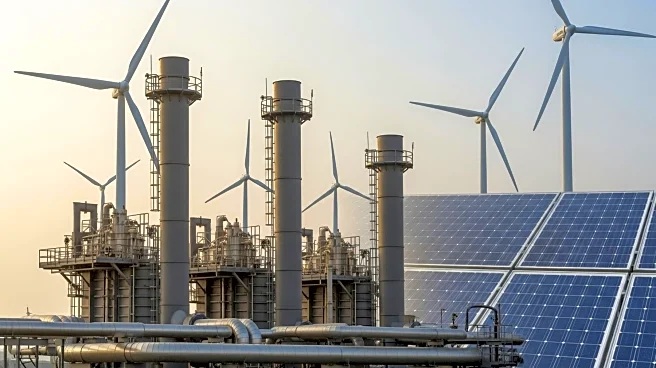What's Happening?
The PGE gas-fired power plant near Rye House railway station in Hertfordshire is at the center of discussions regarding the profitability and role of gas generators in the UK's energy system. Concerns have been raised about whether these plants are making fair profits, leading to proposals for system reforms. One suggestion is that gas plants should provide a strategic reserve of electricity at an agreed price rather than selling on the open market. This proposal aims to ensure reliability, likening gas plants to a fire brigade that must be ready when needed. Despite these discussions, gas plants continue to play a significant role, contributing to a quarter of the UK's electricity supply.
Why It's Important?
The debate over the role and profitability of gas-fired power plants is crucial as the UK transitions to a low-carbon energy system. Gas plants are seen as necessary for grid stability, providing backup power when renewable sources like wind and solar are insufficient. The outcome of these discussions could impact energy prices and the future of gas plants in the UK. If reforms are implemented, it could lead to changes in how these plants operate and are compensated, potentially affecting energy affordability and the pace of the UK's decarbonization efforts.
What's Next?
The UK government and energy stakeholders are likely to continue discussions on reforming the electricity market to balance the need for reliable backup power with the goal of reducing reliance on fossil fuels. The proposals to create a strategic reserve could face resistance from private companies, and further debate is expected on how to achieve lower consumer prices and increased renewable energy use while maintaining grid stability.
Beyond the Headlines
The ethical and economic implications of maintaining gas plants as a strategic reserve highlight the challenges of transitioning to a sustainable energy system. The debate underscores the need for a balanced approach that considers both environmental goals and the economic realities of energy production.











